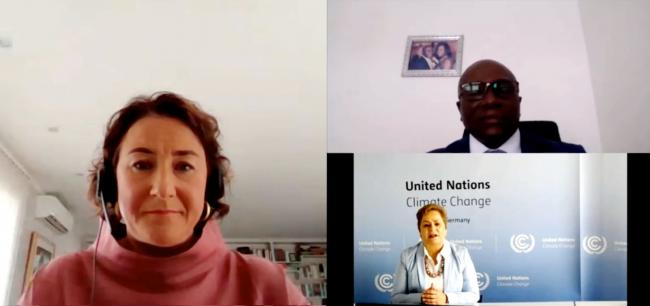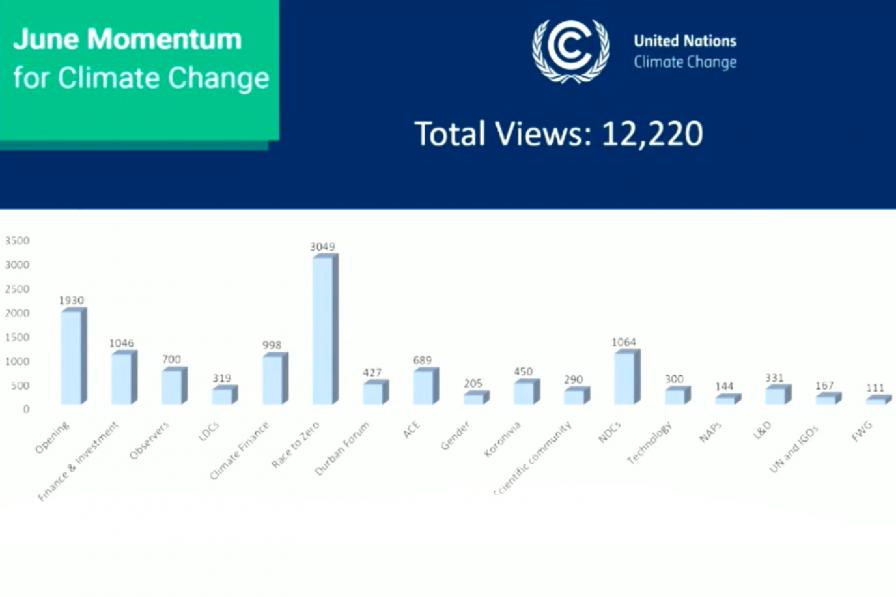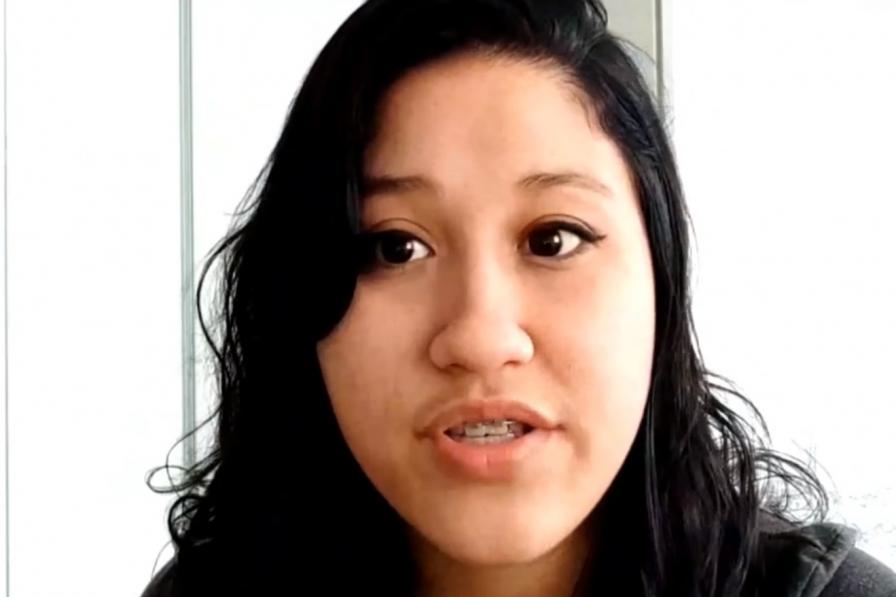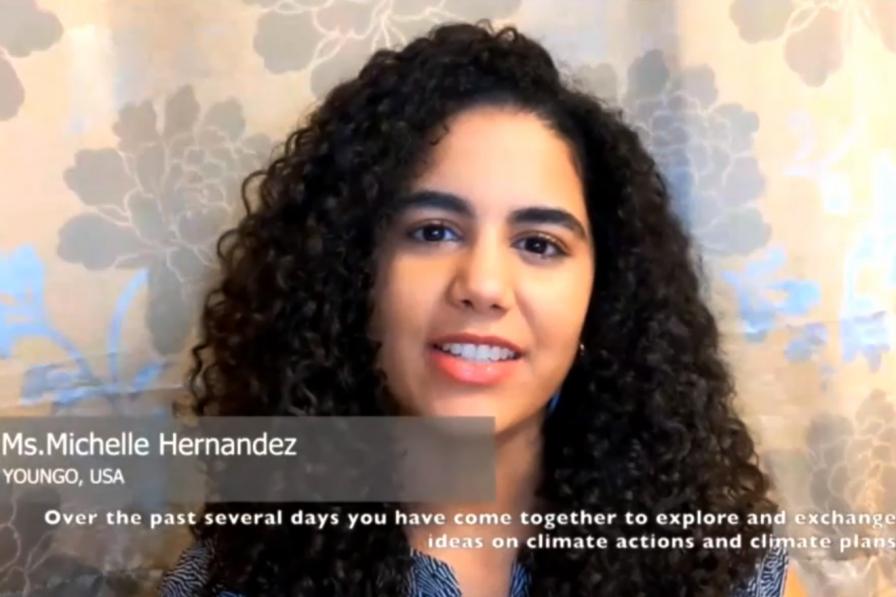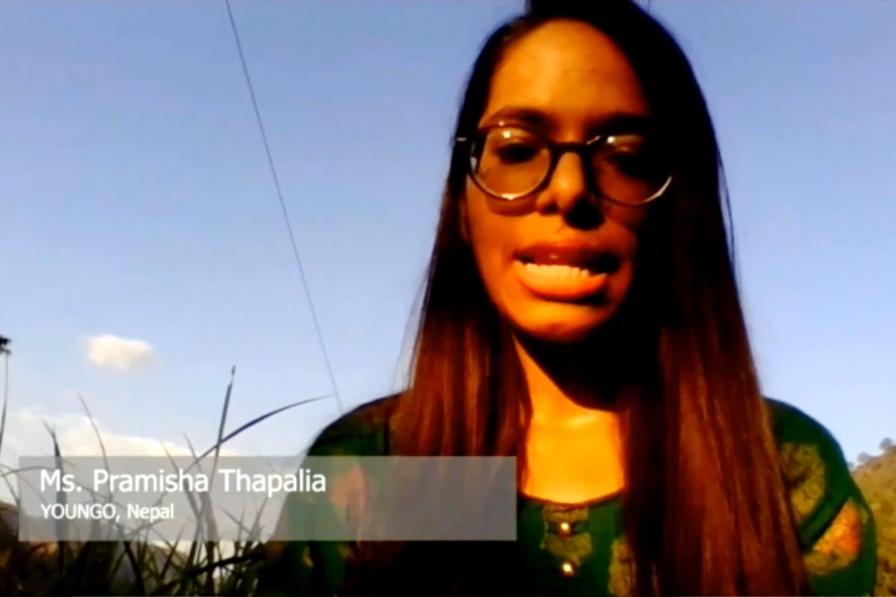The June Momentum for Climate Change, a series of virtual events organized by the UN Framework Convention on Climate Change (UNFCCC) Secretariat, concluded Wednesday with a special event.
Closing Event
Subsidiary Body for Implementation (SBI) Chair Marianne Karlsen (Norway), Subsidiary Body for Technological and Scientific Advice (SBSTA) Chair Tosi Mpanu-Mpanu (Democratic Republic of the Congo), and UNFCCC Executive Secretary Patricia Espinosa reflected on the organization of the June Momentum events and lessons learned, and delivered updates on the way forward. Youth non-governmental organization (YOUNGO) representatives also delivered messages.
Youth video messages
Noting the link between human and planetary health, Silke Bölts, for European youth, called for ensuring sustainable, low-emissions climate conferences through less carbon-intensive travel and catering to “ensure we walk the talk.”
Karim Elbana, for African youth, urged developing empathy for the most vulnerable, noting “thousands could die” from COVID-19 before the next climate change conference due to insufficient access to water and sanitation. He called for facilitating access to food, energy, education, jobs, and medicine for the most vulnerable.
Pramisha Thapaliya, for Asian youth, said COVID-19 exposed societies’ vulnerabilities. She suggested that UNFCCC conferences start serving plant-based food as a first step to demonstrate commitment to transitioning to sustainable agricultural practices and food systems.
Michelle Hernandez, for North American youth, stressed that the climate crisis has the potential to devastate the global community more than the pandemic, lamenting the failure of many leaders to listen to scientists. She underscored the climate crisis is also a human rights and environmental justice issue, and called for inclusion of vulnerable communities’ voices.
Beatriz Pagy, for Latin American youth, called for: integrating the “climate narrative” into all agendas, including national budgets; transferring subsidies from high-emitting sectors to restorative initiatives; and supporting grassroots communities to decentralize decision-making.
Closing dialogue and remarks
Reflecting on the June Momentum events and the youth interventions, Mpanu-Mpanu stressed the need to keep the views and wishes of youth in mind when enhancing climate ambition and action, and reminded that “we cannot quarantine climate change.” Karlsen observed that green, sustainable, and better recovery was a golden thread across the many events, and noted agreement with the YOUNGO representatives that 2020 remains an important year for the climate. She noted the events had demonstrated that the UNFCCC process is not dormant during the pandemic and is responding to the urgency of grater climate ambition and action. Espinosa thanked the youth for demonstrating their willingness to be part of the solution.
Karlsen then shared data about participation, noting: more than 12,000 views of the 17 open events; six additional events requiring registration, including meetings of constituted bodies; and 136 panelists of which 48% were female. Despite “smooth” technical organization overall, she said connectivity and time zones still presented some challenges.
Karlsen and Mpanu-Mpanu assessed the June Momentum against set expectations. On demonstrating progress on climate action, they noted activities that will advance the agenda, including on Action for Climate Empowerment and the Koronivia Joint Work on Agriculture. On responding to the need for greater climate ambition and action, they noted events that emphasized the need for sustainable recovery, including using nationally determined contributions (NDCs) as frameworks.
On advancing technical work and providing an information exchange platform, they noted valuable discussions, including on transparency under the Durban Forum on Capacity-building, and during meetings of constituted bodies, including the first meeting of the Paris Agreement implementation and compliance committee. On fostering engagement, they noted the virtual format reached a broad audience, stressing the essential role of stakeholders in climate ambition and action.
On lessons learned, they identified the need for more spaces for interaction and engagement, and more time for overall preparations.
Espinosa suggested that the June Momentum discussions are a clear statement by those who participated that, “while the crisis may have changed the way we work together, it has not stopped that work.” She expressed hope that the discussions helped countries ahead of the subsidiary bodies’ meetings in October 2020.
Noting that “the best of 2020 is still ahead of us and we need to flatten the curve of climate change in a sustainable manner,” Mpanu-Mpanu and Karlsen thanked all participants and stakeholders. They closed the meeting, expressing determination to ensure successful meetings of the subsidiary bodies in a transparent, inclusive and efficient manner.
Selected Photos

Silke Bolts, youth non-governmental organization (YOUNGO) representative for European youth, delivers a video message.
